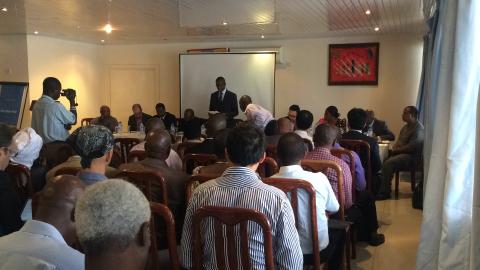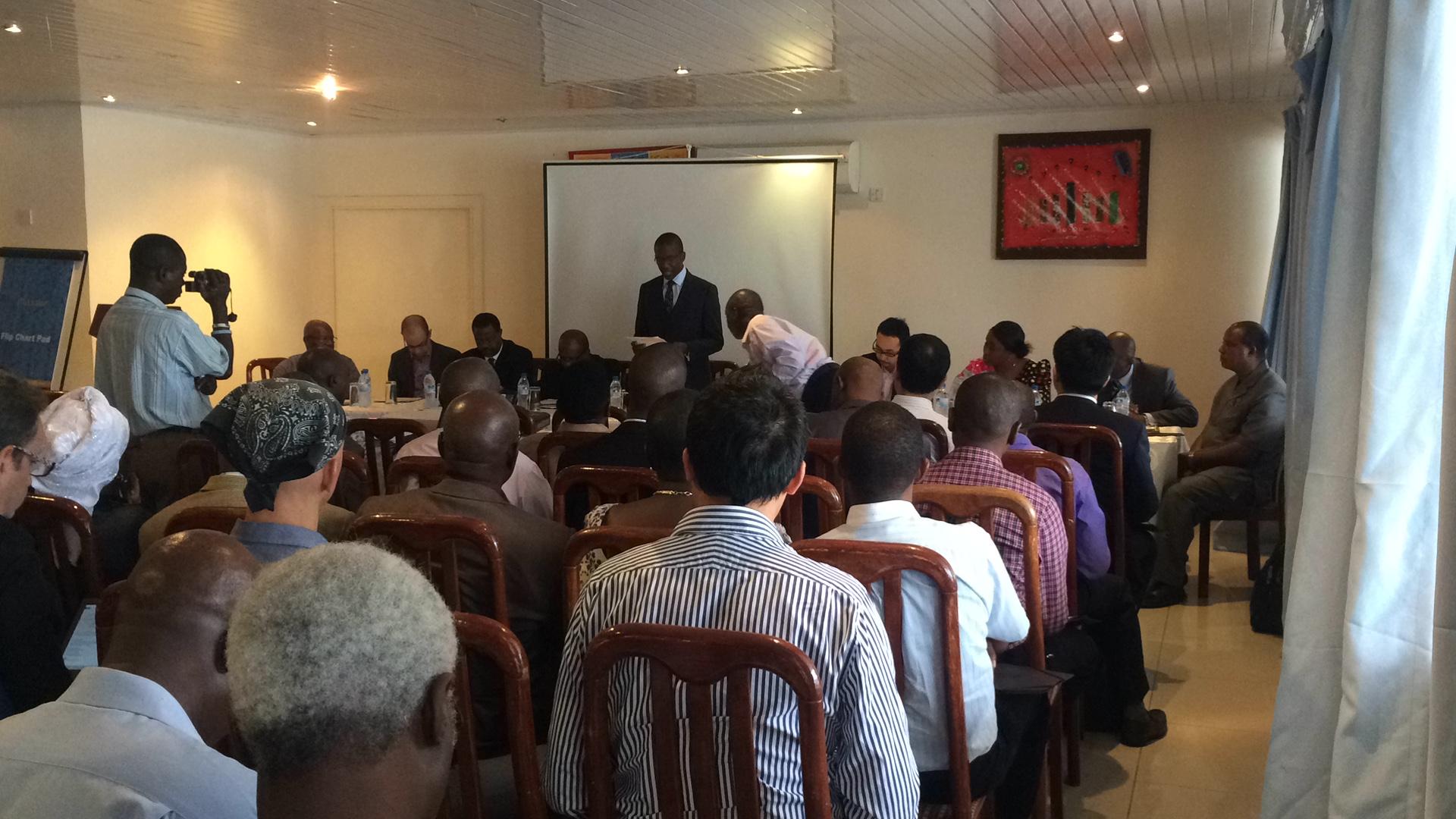
Declared as the year for international development, 2015 certainly started with 3 weeks of powerful health action. From Jan. 9-23, the World Health Organization supported the 3 countries most severely affected by the Ebola outbreak — Guinea, Liberia and Sierra Leone — to develop plans for rebuilding resilient health systems and to assess how the UHC partnership program can best respond to the impact of the epidemic by adjusting its health systems priorities accordingly.
Although international media is giving the impression that we can now breathe a sigh of relief — with the number of reported and confirmed cases decreasing on a day-to-day basis — WHO Health Policy Expert Denis Porignon warns that any de-escalation of efforts would be premature: “The crisis is far from over … It will take time before it can be declared completely managed.”
Challenged on the question of whether WHO had now, in the context of the crisis, gained recognition among its international partners for the role it has played as lead coordinating agency in the sector, Porignon was clear: “In the 3 affected West African countries, everyone is now looking at WHO for guidance to be provided to the ministries of health, in order to maintain truly effective efforts to manage the Ebola crisis and rebuild resilient health systems”.
At the latest at a high-level international meeting convened by WHO at its Geneva headquarters in Dec. 2014, the international community also recognized the need for a type of “Marshall Plan” — referring to the U.S.-led economic recovery and stimulus package for Europe following the end of World War II — for building resilient health systems in the aftermath of the Ebola crisis.
Two important international follow-up meetings have been scheduled for Spring 2015 in order to advance this work: First, the EU will hold an international high-level conference on Ebola in March 2015 where national Ebola Recovery Assessments will be discussed with the governments of Guinea, Liberia and Sierra Leone. Secondly, the World Bank/IMF Spring Meeting in Washington, DC, in early April, where national health sector recovery plans will be presented. The three West African countries are expecting significant pledges to be made by international partners and the level of ambition in regards to the preparation of the events reflects this expectation.
Three national planning meetings for 3-pronged action
One of the objectives of three support missions conducted by WHO in Guinea, Sierra Leone and Liberia in January was to help countries prepare for the abovementioned events, by supporting their ministries of health in taking two fundamental steps needed for a sustainable approach to fighting the causes and addressing the consequences of Ebola.
First, the elaboration of sector recovery plans. Secondly, the subsequent integration of these plans into the multi-year national health plans.
With financial and logistical support from WHO, the ministries of health in all three countries convened national planning meetings in Jan., with multi-stakeholder participation from government, civil society and the international development community.
The high level of representation and attendance reflected the considerable national and international interest in and demand for such an event: In Liberia, President Ellen Johnson Sirleaf closely followed this process and called for a subsequent cabinet retreat where the health systems work was on the agenda. In Guinea, Prime Minister Mohamed Said Fofana opened the event and the ministers of health attended in all three countries. In Sierra Leone, the consultation gathered a total of 196 participants including representatives from the Ministry of Health and Sanitation, district authorities, development partners and NGOs.
During these meetings, WHO played a key role in helping the countries to identify and cost high-priority interventions, by focusing their recovery and health system resilience plans on three key areas:
- Getting rid of Ebola: 0 cases, 0 deaths, e.g. by defining additional activities helping health centers and hospitals tackle the present crisis as well as potential future crises.
- Supporting the district health system, e.g. Ebola efforts need to be progressively integrated into district work through district-specific plans and indicators.
- Strengthen governance and leadership of the MoH in the health sector, so as to progressively work towards risk reduction.
This work resulted in a clear and concise summary document for each country, setting the scene, priorities and big areas of activity in the coming three years. “Naturally, these documents will need refining before being presented to the high-level participants of the meeting in April,” said Porignon. “This will be done with the help of WHO and other major health partners on the ground in the coming weeks up until March.”
The meeting also helped firm up national-level commitments to the work: “With the working groups organized during the meeting, we have a group of people who are willing to act as resources for the continuation of the work during coming weeks — so that is also an important result,” said Porignon.
In addition to this important work, the WHO technical assistants in charge at country level for implementing the EU-LUX-WHO partnership agreement activities are providing day-to-day support to the ministries of health. This involves either updating existing national health plans or elaborating new ones so as to ensure that the 3-year health sector recovery plans are incorporated.
What will change for the EU-LUX-WHO UHC partnership?
Asked how the Ebola response work would impact the EU-LUX-WHO Universal Health Coverage partnership program, Porignon mentioned new opportunities for advocacy and support to health systems strengthening, but also new challenges.
Country roadmaps will need to be adapted, he said, in order to incorporate new national health plan and recovery plan priorities, which has already led to a heavier coordination burden for WHO’s TA in country.
With the number of actors involved in the international Ebola response, this coordination is proving complex: For example, sector recovery plan elaboration processes will need to be carefully coordinated and aligned with the parallel elaboration of general economic recovery plans, supported by the United Nations, the World Bank and the EU, and to be presented in March in Brussels.
To that end, additional support will be provided through the EU-LUX-WHO partnership to ensure that countries will be able to present their position on how they want to envisage their reconstruction process during the coming three years. WHO will liaise with high-level in-country actors to ensure that health systems strengthening is not forgotten along the road of economic recovery.
